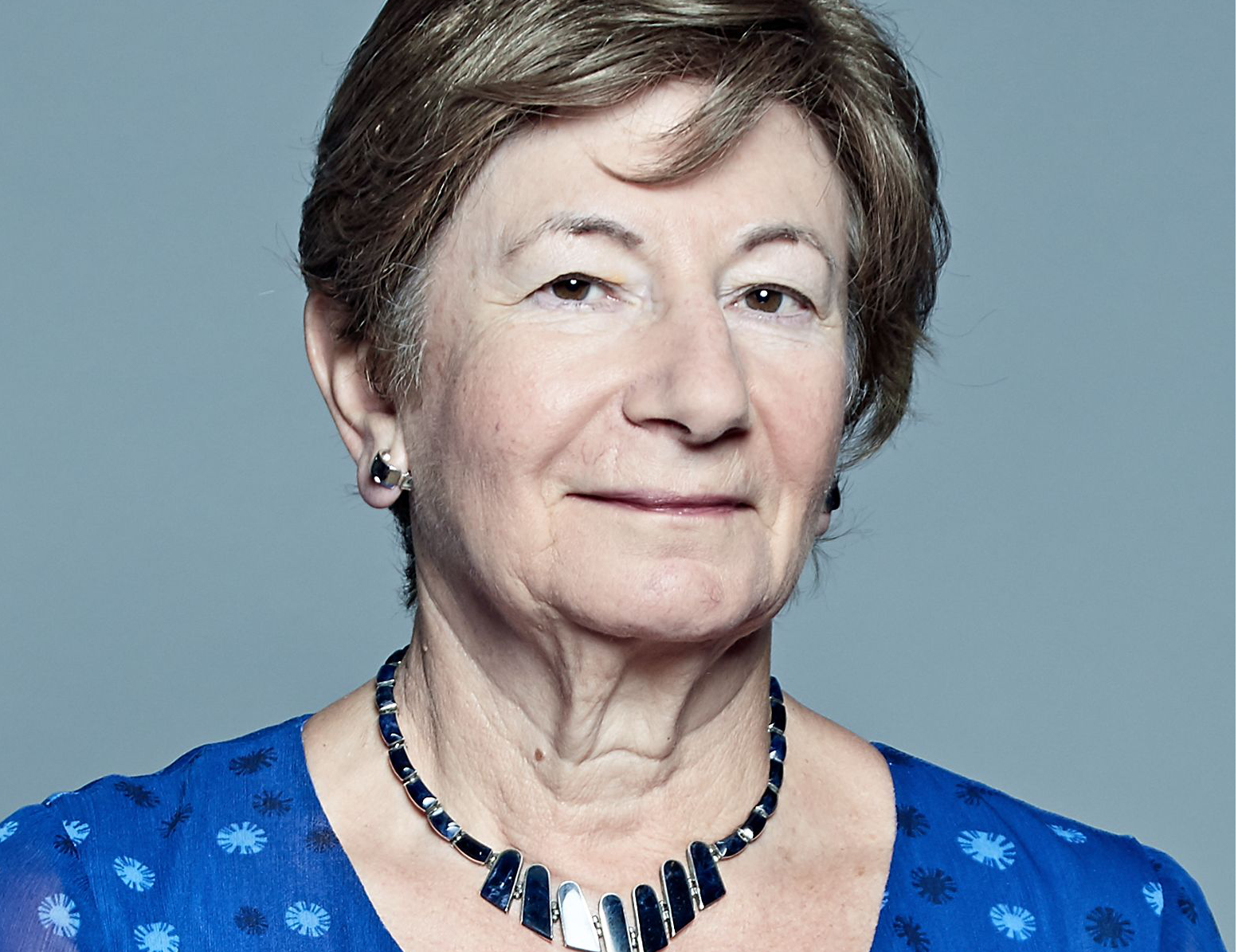House of Lords bid to protect women refused gets
Labour, Conservative, Lib Dem and Independent politicians unite for proposal that would give hope to Jewish women being refused divorce by their husbands
Cross-party calls for the Domestic Abuse Bill to protect victims of ‘Get refusal’ were heard in the upper-chamber this week – giving hope to at least 30 women in the UK currently being refused a Jewish divorce by their spouse.
The proposals to protect victims of Get refusal – where one party refuses to grant a divorce to another under Orthodox Jewish law – were put forward by members of the House of Lords. Speaking in the upper-chamber were Tory Baroness Ros Altmann, Labourite Lord Jonathan Mendelsohn, Baroness Ruth Deech and Lord Monroe Palmer of the Liberal Democrats.
They called for the Domestic Abuse Bill to recognise the issue of Get refusal. Until they receive a ‘Get’, the refusal prevents the person from re-marrying under Orthodox law. If a woman does not receive a Get from their husband, they are known as an “Agunah”, or a “chained woman”. Typically, it is the husband who refuses to grant his wife a Jewish divorce, as a religious court can override the decision of a woman who does not wish to dissolve the marriage by accepting a Get granted to her. The same cannot be done for a man.
There are currently almost 30 women in the UK suffering from the threat of ‘Get refusal’ being supported by the Jewish Women’s Aid charity. At least 15 are going through the process of directly attempting to receive a Jewish divorce from their husband, but the rest have said the threat of ‘Get refusal’ has stopped them pursuing civil divorce proceedings.
- OPINION – Naomi Dickson: Time to cast away the shadows of chained women
Speaking in the House of Lords, Baroness Altmann, a member of Finchley United Synagogue, called on members to recognise the refusal to grant a Get as a form of domestic abuse in British law.

Baroness Altmann called on the government to consider implementing amendments, secondary legislation or statutory guidance so victims of Get refusal could be supported in the UK’s legal framework.
Baroness Altmann, who will meet Ministers and Beth Din representatives in the coming weeks, said: “This issue has long been of concern to myself and many other religious Jews in this country – and worldwide. Our aim is to help victims who are unable to leave a failed marriage because their spouse unreasonably decides to prevent them from moving on with their life, in accordance with Jewish religious law.”
She added: “Jewish law of course governs Judaism, but this Bill can offer a means of helping those impacted by the particular type of abuse which can arise in some cases under Jewish laws of divorce.”
Lord Mendelsohn gave examples of women facing Get refusal and criticised rabbinical leaders for not doing enough to support victims.

He highlighted the case of a woman who gave her ex-husband £150,000 in exchange for her Get; “less than that awarded by the civil court and being forced to sign a document relinquishing any ownership of the joint properties. She was encouraged by the Beth Din to accept the offer as a legitimate way to secure her Get, but she did not choose to do so”.
He continued: “Another example is of a woman who has been waiting 20 years for her Get and whose estranged husband has left the religious community, so it has no hold of him…
“A third woman’s husband was being prosecuted for the sexual abuse of children. In trying to secure her Get, she was asked, including by presiding members of the religious court, to lie to the police and tell them that the accusations had been fabricated so that she could be given her religious divorce. Additional financial sums were requested. The husband made further demands that were impossible for the wife to fulfil.”
He added: “While the Beth Din expressed sympathy with her plight, there was no movement on the securing of the Get.”
Baroness Deech added to the list of examples of women who had been blackmailed into paying for a Get. “A recent case involved a woman paying her ex-husband £50,000 for her freedom after 15 years of being chained; others have cost similar five-figure sums.”

Lord Palmer said: “We should do everything we can in UK legislation to give power to the women who have such problems.”
David Frei, Registrar of the London Beth Din, said: “The London Beth Din leaves no stone unturned in our efforts to support agunot and help resolve their cases. We will continue to engage with the members of the House of Lords to share our expertise and offer guidance on the proposed legislation to achieve an effective outcome which at the same time is Halachically acceptable.”
Naomi Dickson, chief executive of JWA, which is currently supporting 800 women and their families, welcomed the move. She said: “JWA has long held that ‘Get refusal’ is a form of domestic abuse in itself and our support workers actively help women facing this, alongside the other types of abuse which chained women often experience at the hands of their perpetrator.”
She confirmed that JWA, which also trains communal workers to spot signs of abuse, had been consulted to amend the Domestic Abuse Bill to “explicitly include ‘Get refusal’ as a form of domestic abuse under UK law.”
Ms Dickson added: “Not only will this be the kind of legal recognition be hugely helpful for Jewish women suffering the torment of being trapped in their marriage by husbands who are abusing Jewish law for their own ends, it will also act as a further deterrent for men who may consider deploying this psychological weapon against their partner.”

The office of the Chief Rabbi refused to comment on the reform call from the peers.
There have long been calls in the community for reform. In 2016, the London Beth Din appointed lawyer Joanne Greenaway to work on the issue. Supported by Chief Rabbi Ephraim Mirvis, Ms Greenaway, now CEO of the London School of Jewish Studies, backed the decision to ‘name and shame’ husbands who had denied their wives a ‘Get’ by printing a notice of the man and refusing him entry into his local synagogue.
In the United States, women have paid people to physically force their husbands to grant them with Get. In 2016, Rabbi Mendel Epstein was jailed after offering to torture husbands who refused to provide their wives with a Get, in exchange for almost £45,000.

Thank you for helping to make Jewish News the leading source of news and opinion for the UK Jewish community. Today we're asking for your invaluable help to continue putting our community first in everything we do.
For as little as £5 a month you can help sustain the vital work we do in celebrating and standing up for Jewish life in Britain.
Jewish News holds our community together and keeps us connected. Like a synagogue, it’s where people turn to feel part of something bigger. It also proudly shows the rest of Britain the vibrancy and rich culture of modern Jewish life.
You can make a quick and easy one-off or monthly contribution of £5, £10, £20 or any other sum you’re comfortable with.
100% of your donation will help us continue celebrating our community, in all its dynamic diversity...
Engaging
Being a community platform means so much more than producing a newspaper and website. One of our proudest roles is media partnering with our invaluable charities to amplify the outstanding work they do to help us all.
Celebrating
There’s no shortage of oys in the world but Jewish News takes every opportunity to celebrate the joys too, through projects like Night of Heroes, 40 Under 40 and other compelling countdowns that make the community kvell with pride.
Pioneering
In the first collaboration between media outlets from different faiths, Jewish News worked with British Muslim TV and Church Times to produce a list of young activists leading the way on interfaith understanding.
Campaigning
Royal Mail issued a stamp honouring Holocaust hero Sir Nicholas Winton after a Jewish News campaign attracted more than 100,000 backers. Jewish Newsalso produces special editions of the paper highlighting pressing issues including mental health and Holocaust remembrance.
Easy access
In an age when news is readily accessible, Jewish News provides high-quality content free online and offline, removing any financial barriers to connecting people.
Voice of our community to wider society
The Jewish News team regularly appears on TV, radio and on the pages of the national press to comment on stories about the Jewish community. Easy access to the paper on the streets of London also means Jewish News provides an invaluable window into the community for the country at large.
We hope you agree all this is worth preserving.






















